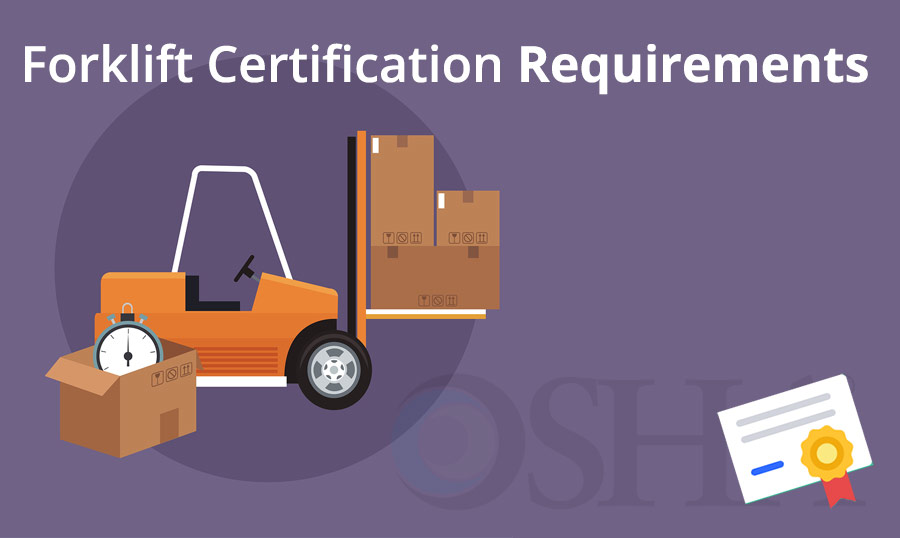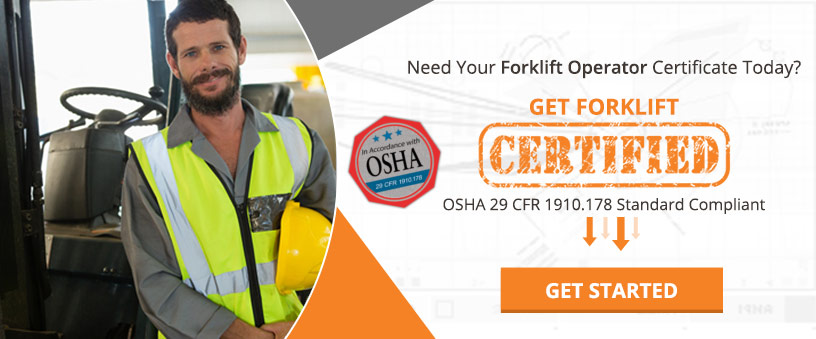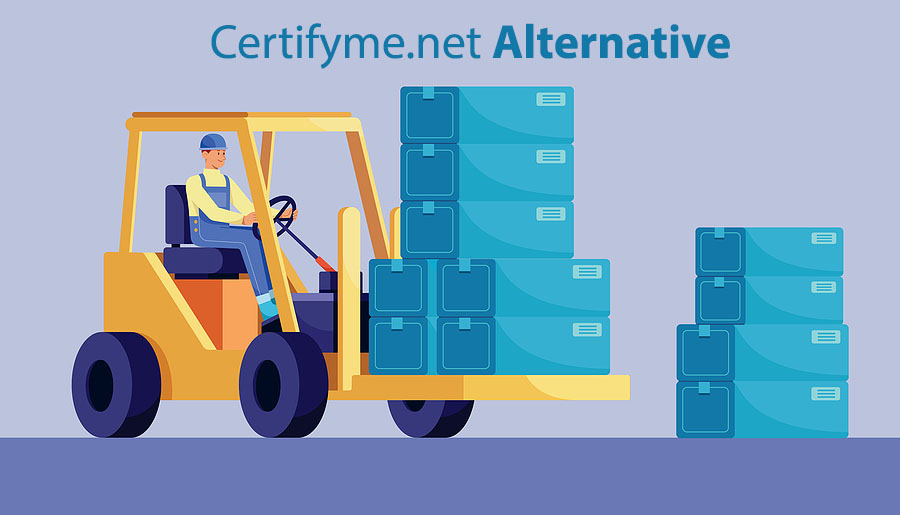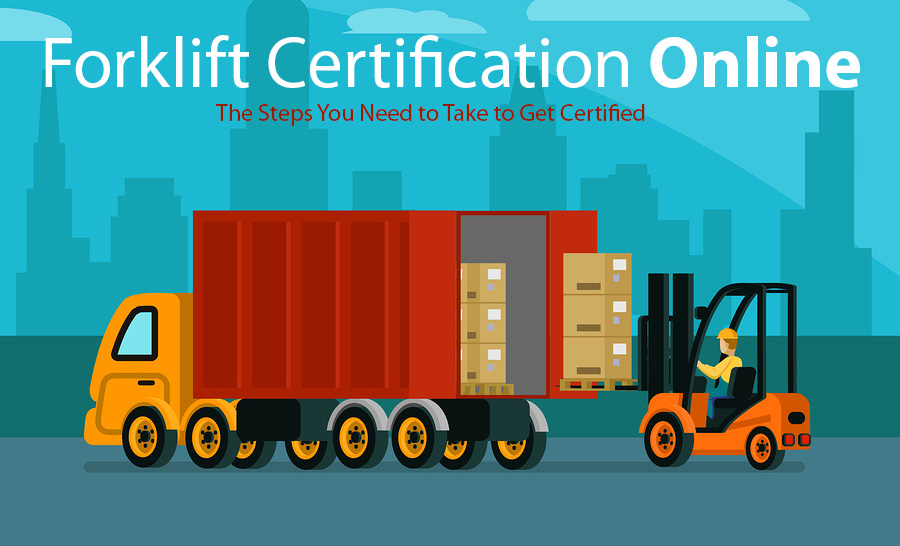Forklift Certification Requirements
Interested in starting a career as a forklift operator? Perhaps you’ve got some real-world experience under your belt, but it’s been a few years since you operated a forklift or other type of truck. Forklift operators are in high demand across industries as diverse as 3PL, retail, warehouse stores and warehousing operations, distribution companies, and many others. In fact, it’s one of the fastest-growing careers out there. However, if you want to take advantage of that demand, you’ll need to complete training and become certified, which means you need to meet forklift certification requirements. What are they, and how do you comply with them?
Employer-provided or Third-Party Training
You will encounter two types of forklift certification training out there in the world – employer-provided and third-party training. They can both offer you the certification that you need, but they’re not the same.
OSHA puts the onus of coming up with training programs, delivering that content, and then evaluating drivers on the shoulders of US employers. The actual wording on OSHA’s website is, “The standard requires employers to develop and implement a training program based on the general principles of safe truck operation, the types of vehicle(s) being used in the workplace, the hazards of the workplace created by the use of the vehicle(s), and the general safety requirements of the OSHA standard.”
This is a major burden, and for smaller companies, it can be impossible to meet. More and more employers are finding the benefits of turning to third-party companies for the theory-related forklift training portion of the certification process, allowing them to evaluate operators simply after their training has been completed.
Individual job seekers are also finding the benefits of third-party training providers. By completing online forklift certification training before even applying for a forklift operator job, you show your dedication and commitment and will stand out from the slew of other applicants.
Online or In-Person Training
In addition to the question of completing employer-provided or third-party-delivered training, you will also need to choose between online or in-person training. Classroom-based learning, the traditional instruction method, might seem like the way to go at first, but it has a number of drawbacks. For employers, it can be costly, difficult to schedule, and even harder to administrate. For operators, it can mean taking time out of your personal life, as well as increasing your overall costs.
Online training, on the other hand, offers the ability to complete coursework at your own pace. For employers, it is more cost-effective, easier to arrange, and can be delivered on an as-needed basis. Individual operators will find that it can be the ideal solution to their needs, allowing them to get a leg up on the competition.
Codifying the Forklift Certification Requirements
Now that we have discussed training provider types and formats, we need to turn our attention to the actual forklift certification requirements. We’ll break this down into several subsections to more clearly illustrate what job seekers and employers need to know.
Who Needs Training and Certification?
The simple answer to the question above is “everyone who will operate a forklift.” However, that’s a simple answer to a very broad question. A better answer is, “It depends”.
New Forklift Operators: New operators are required to complete a qualifying training and certification program and undergo a performance evaluation by the employer prior to being allowed to operate a forklift.
Refresher Training: Refresher training is required by OSHA in a number of instances. For instance, refresher training is needed if an operator has an accident with a forklift. If an operator is seen using a forklift in an unsafe manner, refresher training is needed. An accident resulting in injury to another person will require refresher training.
Recertification: All forklift operators must recertify every three years according to some standards, such as the CSA B335 Safety Standard for Lift Trucks. This is regardless of whether they have experienced any accidents or operated machinery in an unsafe environment. Recertification offers not just a chance to refresh an operator’s knowledge of safety requirements but will familiarize them with new technologies, techniques, and requirements that may have occurred since their last certification course.
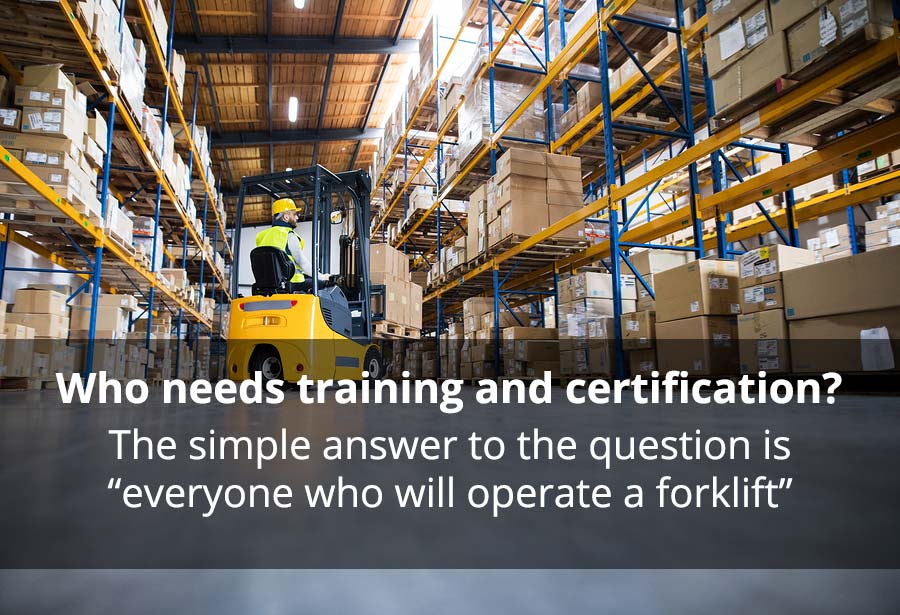
Content Required in Forklift Certification Programs
You’ll find that OSHA mandates a number of very strict forklift certification requirements in terms of topics that must be covered. However, employers are able to pick and choose – they can omit any areas that do not apply to their work environment or the trucks the employee will be operating.
There are three sections within the wider OSHA training mandate. These are as follows:
Equipment – Training requirements in this section focus on the forklift itself and its operation. Topics covered will include things like proper loading, proper maintenance, maneuvering, and driving, fueling, reading and understanding gauges and controls, and the like. It is primarily focused on ensuring that the driver is completely familiar with how a forklift operates and what must be done to ensure safe loading and unloading.
Environment – The environment segment focuses on forklift certification requirements that surround the workplace itself. This can include things like driving on different types of surfaces, dealing with pedestrian traffic and other vehicles, manipulating loads and narrow aisles, dealing with hazards like ramps or trailers, ensuring proper load stability, and more.
Product – The final segment of training focuses on dealing with products and merchandise. This might be boxed, palletized items, or it could be rolled material such as carpet. It could be produced, or it could be heavy equipment and tools.
The final portion of training is a performance evaluation monitored by an authorized representative of the employer. It might be a safety manager, but is more likely to be the warehouse manager, supervisor, lead hand, or even an experienced forklift operator when it comes to smaller operations. This person will be responsible for observing the operator in action, verifying that they understand the topics covered in training, and then signing off on their training.
As you can see, there are some very specific forklift certification requirements. It is essential to choose an online forklift course that meets or exceeds them.

